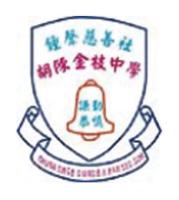| Language Policy |
Mother Tongue Instruction with emphasis on Bilingual and Trilingual Training:<br>1. For S. 1 to S. 6, the "Chinese Language" subject offers separate classes for "Putonghua" , "Cantonese," and "Non-Chinese Adaptation Course (GCE)."<br>2. Our school implements a "Fine-tuning Language Instruction" arrangement where "Mathematics" and "Information and Communication Technology" are taught in separate groups of "English" and "Cantonese."<br>In addition to having two foreign teachers, our school has also employed three local and foreign English tutors, as well as qualified Chinese (Putonghua) teachers. They assist in collaborative teaching during classes and provide language enrichment courses and activities during recess or holidays. Depending on students' individual circumstances, some students with stronger English proficiency and Non-Chinese students are placed in English-medium instruction groups for Mathematics and Computer Literacy classes.<br> |
| Learning and Teaching Strategies |
Learning Strategies:<br>1. To develop students' learning skills, communication skills, and leadership skills;<br>2. To activate students' multiple intelligence;<br>3. To review students' learning process, there are 3 examinations per school year, and students' reports will be issued on Parents' Days. |
| School-based curriculum |
1. Electives: 2X. Business (Business, Accountants and Financial Studies), Information and Communication Technology, Chinese History, Physics, Chemistry, Biology, Tourism & Hospitality Studies, Technology and Living, Economics.<br> 2. Curriculum highlights: Curriculum adaption, differentiated teaching, multi-sensory approach, multi-intelligence strategies, cooperative learning, graded worksheets and peer tutoring, etc. to cater for the diverse needs, interest and abilities of learners, Teaching & Learning in Information Technology, Development of Generic Skills, Other Learning Experience and Applied Learning. |
| Approach to Catering for Learner Diversity |
All teaching staff are capable of helping students with different learning needs and diversity. |
| Approach to Integrated Education |
My school is committed to building a culture of inclusiveness and supporting students with special educational needs in a "Whole School Approach" model. Through flexibility in resource allocation, we provide appropriate and diversified support services to enhance students' learning effectiveness and help them integrate into campus life.<br>Student Support Team includes the Vice-Principal, Special Education Needs Coordinator, Prefect of Studies, Guidance Mistress, Social Worker, Educational Psychologist and Teaching Assistants. Good teacher professional development is the reason for a large number of capable and well-trained teachers to support SEN students.<br>Learning Support Grant is used to provide specific measures in supporting students with SEN including teaching adaption, assessment accommodation, remedial learning groups, individual education plan and outsource professional services (e.g. training on social skills, speech therapy services). <br>Mechanism in soliciting parents’ views and discussion on student progress are well established. Curriculum accommodation and differentiated teaching strategies help students obtain quality teaching, additional support and intensive individual support.<br>School emphasizes great importance to the cooperation between home and school. It establishes a regular communication mechanism to discuss and review the strategies for supporting students through different channels. Interim and year-end reviews facilitate school self-evaluation in order to give SEN students more effective and efficient supports. Also, school prepares SEN students well for further studies and better career pathways. |
| Education Support for Non-Chinese Speaking (NCS) Students |
|
| Home-School Co-operation |
Parents play active and positive part in "Home-School Co-operation" and have won the "Grand Prize of Home-School Co-operation Award" and "Outstanding Parents Leadership Award". |
| School Ethos |
1. To facilitate students to set up goals and to build up self-confidence; <br>2. To enhance team spirits among students in school;<br>3. To help students recognize their contribution to the school and the community;<br>4. To facilitate students to recognize the rationale of Invitational Education. |
| School Development Plan |
1. To monitor students' academic result and performance with the help of quality control mechanism;<br>2. To promote academic and cultural exchange programmes with Mainland as well as overseas educational institutions. |
| Teacher Professional Training and Development |
1. To activate the co-ordination of multi-subjects in teaching by assigning a school theme called "Quality Education and Holistic Development";<br>2. To participate the "Learning Circle Project" and "Invitational Education Project" organized by the EDB (sending teachers to Singapore and U.S.A. to attend educational conferences and visit partner schools.) |
| Life-wide Learning |
In order to cultivate students' interests in various fields, our school offers many interest clubs of different categories, namely, academic, interest, sports, and arts. The main goal is to develop students' potentials in "Multiple-intelligence" and "Generic Skills". Most importantly, it can serve as a platform to enhance the understanding between students and teachers. On the other hand, it can build up students' sense of belonging to school and the spirit of responsibility to the community. |
